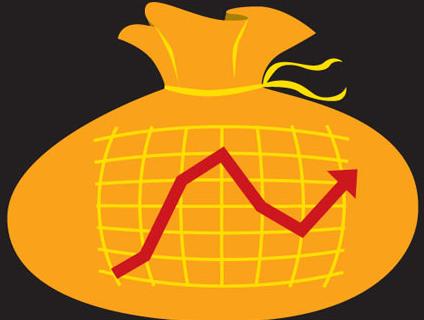
Every mutual fund agent and financial Web site has different theories on how to evaluate mutual funds. Many of these theories focus on simply analysing the fund's recent performance and the reputation of the fund house, which is rarely enough to differentiate a good investment from a bad one.
In reality, mutual fund analysis is a sophisticated problem studied by global investment professionals, and while no list can do complete justice to the problem, there are ten nuanced factors that professionals look at:
1. Performance track record
Everyone scrutinises returns but the key word is track record or the complete history of returns. Funds in India often sell on recent track record (a week, month, or year), which says little about the fund's long-term performance. Fund houses will also cherry pick the period of returns they show to make the fund house look good.
Since inception performance or performance over the fund's life is a critical factor, equally critical is what the starting point for the fund was. An equity fund that started in October 2008, a market low, will have great since-inception performance today, because it happened to catch a big bull market.
Everyone can succeed in a bull market; analyse how funds have performed in a bear market. Be sure to use a correct benchmark when analysing a fund's relative performance. A small-cap fund should be benchmarked to an index like the BSE 200 or BSE 500, while a large cap fund to the Nifty or Sensex.
Fund houses will commonly show small-cap funds in comparison to the Sensex, which is an unfair benchmark because there is a premium on small-cap stocks as they always do better in a broad based bull rally.
2. Fund manager profile
The fund manager (not the fund) is often ignored in the mutual fund decision-making process, and is more directly related to how your money is managed than the fund house. In reality, the fund manager is the one making the actual investment decisions and driving the trades.
A strong fund manager will have a professional qualification in finance and many years of experience in investment management, where investment management is specifically the management of funds, and not investment banking, chartered accountancy, and brokerage.
Understand what funds the manager has worked at in the past and what her/his own investment track record is. It's also important to look at the management of the firm and their involvement in the fund: Who makes the final decision, the fund manager or the fund house management?
The author is the co-founder of Forefront Capital Management (http://www.forefrontcap.com), a specialised portfolio management services firm providing equity investments based on quantitative portfolio construction. She can be contacted at radhika.gupta@forefrontcap.com.

A good fund manager will have a distinct investment style, whether it is fundamental, quantitative or macroeconomic. No one style is better than the other; the important thing is whether the manager sticks to her/his investment style and if this style is reflected in the portfolio holdings. A small-cap fund manager should not start doing arbitrage strategies just because they get good returns.
A fundamental manager who focuses on the deep understanding of companies and sectors should not manage an IT fund, a pharma fund, and an infra fund. A fund manager's style should not be determined by what is selling in the market.
4. Risk
Returns are important, but risk is just as important, if not more.
Risk can be quantified in various ways from as simple as standard deviation and beta to more complicated risk models. What is important to check is a fund doesn't just show good returns, but good risk adjusted returns. Sharpe or information ratio is a good measure of risk-adjusted returns.
In addition to total returns, the risk a fund takes relative to its benchmark should be studied. If you are looking for equity returns similar to the benchmark and a fund is taking a lot of risk to the benchmark, you may not be paying for what you want.
Also, good funds should have an independent risk management team that oversees the portfolio manager and keeps the risk the manager takes in check.
The author is the co-founder of Forefront Capital Management (http://www.forefrontcap.com), a specialised portfolio management services firm providing equity investments based on quantitative portfolio construction. She can be contacted at radhika.gupta@forefrontcap.com.

Portfolio turnover is a measure of the amount of trading the fund is doing and a measure of how aggressively the portfolio is churning the portfolio. Higher amounts of turnover means the fund is holding their investments for a much shorter period, which may be undesirable if you think of your equity investments as a long term investment.
In addition, higher amounts of turnover lead to higher expenses whether it is brokerage, custody, statutory taxes or other expenses. This is a hidden yet important cost because it directly reduces your returns.
6. Fund size
Fund houses and mutual fund agents often pitch larger funds as better, because raising more assets is a sign of fund performance and investor confidence.
This is only partly true. While a fund should have some size, larger funds are not nimble and their trading activity can move the markets. If a large institutional investor redeems his units from the fund, the fund will have to sell its holdings to meet the redemption request. The sell orders of the fund are likely to move prices and the brunt of this is borne by smaller retail investors.
In addition larger funds struggle with liquidity -- it is hard to exit out of holdings in a cost-efficient and timely way because the trade size is so large.
Also, larger funds are likely to skip smaller potential multi-bagger investments because at the starting point, the investments are too small to make a meaningful difference to the corpus.
The author is the co-founder of Forefront Capital Management (http://www.forefrontcap.com), a specialised portfolio management services firm providing equity investments based on quantitative portfolio construction. She can be contacted at radhika.gupta@forefrontcap.com.

Mutual fund investment costs are not insignificant and are often deceptive. Funds will often show only entry and exit loads, leaving out the expense ratio, which is a very significant cost. In addition, the entry load is now a moot point since SEBI has regulated that entry loads are out -- a fund is not doing you a favour with zero entry-load.
Exit loads, which are perceived negatively, are not always bad -- they prevent you from recklessly moving from one fund to another, and keep your focus on the long term. It is just important to make sure the exit load is in line with your investment horizon.
8. Fund house approach
The fund house's approach of managing their portfolio of funds says a lot about their commitment to providing clients good investment returns.
Fund houses that are focused on managing a few funds well are better than fund houses that launch one fund after another, just because there is a new flavour of the season. Fund houses that have the courage to launch innovative products and concepts are also better than those creating me-too products.
Also beware of fund houses that launch and shut down the same concept again and again -- just for the benefit of getting a fresh track record.
The author is the co-founder of Forefront Capital Management (http://www.forefrontcap.com), a specialised portfolio management services firm providing equity investments based on quantitative portfolio construction. She can be contacted at radhika.gupta@forefrontcap.com.

Ask your mutual fund agent to tell you the investment objective of the fund: What is the fund trying to provide to you?
Long-term capital appreciation is not an investment objective -- every fund tries to provide that and every investor wants that. Examples of investment objectives are tracking the Nifty, providing roughly 5 per cent over the Nifty, or providing 10 per cent a year in all market environments (bull or bear).
An investment objective should be concrete and realistic -- 50 per cent returns every year is not realistic.
Once you know the fund's objective you can correctly evaluate its performance -- a fund whose goal is to track the benchmark cannot be criticised for not outperforming it.
10. Aggressive cash management
It is important to understand what percentage of the assets a fund holds in cash and what its cash management strategy is, as well as what the historical cash holdings are.
Funds that move into cash aggressively may be able to protect you in crash. However, keep in mind, as the market rallies, they will lag the market as they move back from cash to equities. On the other hand, funds that are always fully invested will do well in a rally, but give you severely negative returns in a crash.
Selecting a mutual fund is both art and science and should be done very thoughtfully. Study the fund house carefully or work with a qualified investment advisor who understands mutual fund selection. More than 40 fund houses and thousands of funds make us spoilt for choice. So, choose wisely.
The author is the co-founder of Forefront Capital Management (http://www.forefrontcap.com), a specialised portfolio management services firm providing equity investments based on quantitative portfolio construction. She can be contacted at radhika.gupta@forefrontcap.com.